I recently dove into Like a Dragon: Pirate Yakuza in Hawaii, and I felt compelled to share my experience. As a dedicated gamer, I always search for titles that challenge my skills and immerse me in innovative gameplay. This game, developed by Ryu Ga Gotoku Studio and published by SEGA, offers a unique twist on the established Like a Dragon formula. It brings the chaos of modern-day pirate life into the mix while preserving elements familiar to fans of the series. Overall, the game delivers a wild yet thoughtful experience that caters well to hardcore gamers.
Overall Impressions
From the moment I booted up the game, I sensed an over-the-top pirate adventure that branched out from the traditional Yakuza narrative. The idea of an ex-yakuza turned pirate captain is ingenious and refreshing. I appreciated the blend of humor, drama, and sheer absurdity the game injects into its storyline. The narrative combines lost memories with treasure hunts and even integrates hallucinations during combat. Although some story elements feel rushed and the pacing in Chapters 2 and 3 stumbles a bit, the overall lighthearted and playful tone captivates me as a player who values both deep narratives and thrilling action.
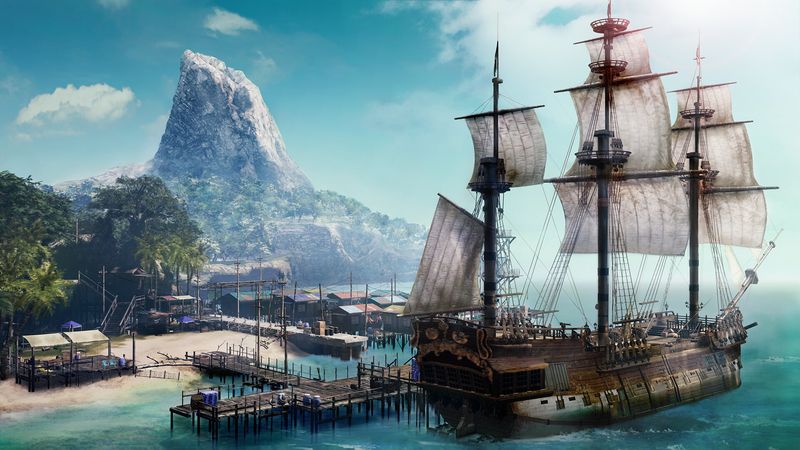
When compared to other entries in the genre, Like a Dragon: Pirate Yakuza in Hawaii stands out for taking risks. The transformation of narrative cues into the realm of pirates doesn’t detract from the core strengths of the Like a Dragon series. Instead, it challenges established norms and blurs the boundaries between gangster drama and swashbuckling exploits. The game retains the quirky charm of previous titles while embracing new mechanics in both combat and exploration.
Gameplay Mechanics
Combat in this game is where things truly shine. I have always enjoyed tactical beat ‘em up systems, and here, combat receives a significant upgrade. Majima’s two distinct styles, Mad Dog and Sea Dog, offer choices that suit different combat scenarios. The Mad Dog mode harks back to his classic moves with a technical twist, suitable for isolating targets. Meanwhile, the Sea Dog mode emphasizes crowd control, making it easier to manage larger groups of enemies. The inclusion of the jump mechanic is a game-changer. I found it invigorates combat by allowing mid-air combos and swift dodges. It reminds me of how Judgment introduced wall jumps, though in Like a Dragon: Pirate Yakuza in Hawaii, the jump feature appears to be integral to every fight.
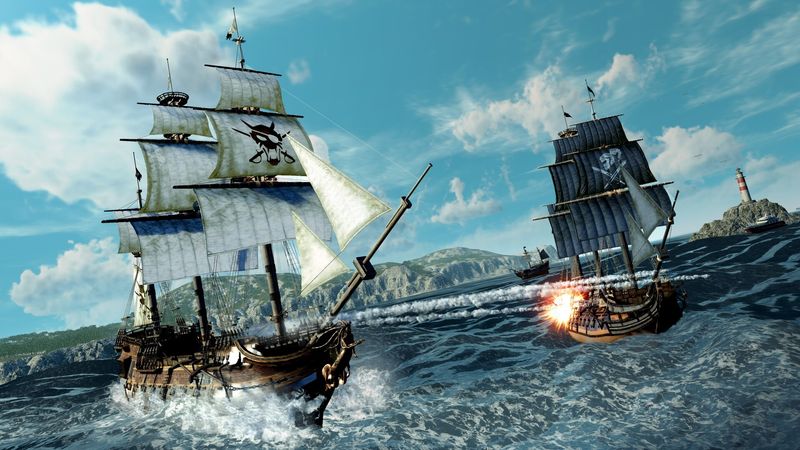
I relished the added variety during combat scenarios when special moves could summon a doppelganger or unleash the damaging Dark Instrument. These skills occasionally feel borderline overpowered, yet they add a layer of tactical depth. I also enjoyed moments when naval battles kicked in. Not many games offer both on-foot melee combat and ship-to-ship warfare. When I steered my ship, the Goromaru, I could fire machine guns, launch cannon barrages, and even ram enemy vessels. Although the ship’s slow movement in exploration sectors occasionally dampened the naval experience, these sequences are still a unique addition that sets the game apart.
Exploration in Like a Dragon: Pirate Yakuza in Hawaii is equally thoughtful. On land, I enjoyed finding hidden treasure chests and secret passageways that made the world feel alive and interactive. The ship customization aspect impressed me as well. I spent time upgrading my vessel and recruiting crew members while charting unknown islands. This dual exploration path enhances replayability and sharply contrasts with the more static combat missions of previous Yakuza titles.
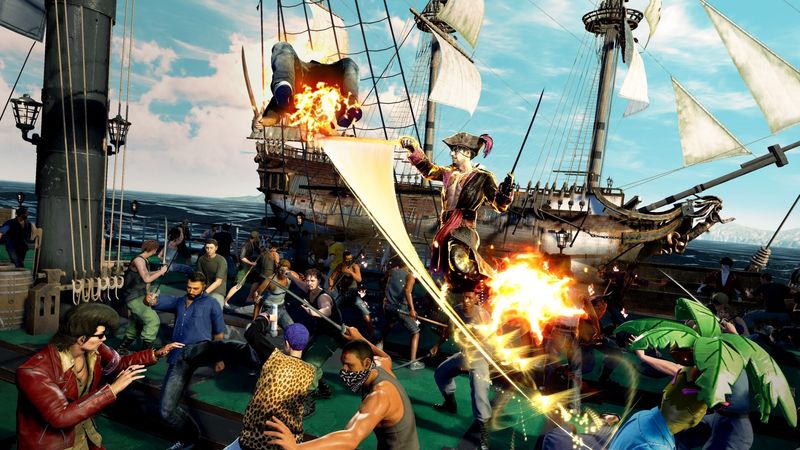
Story and Characters
Like a Dragon: Pirate Yakuza in Hawaii takes a lighter narrative approach while still delivering satisfying storytelling. I found Majima to be a compelling protagonist whose journey to recover lost memories serves as a strong anchor for the story. His character design respects his previous iterations while allowing for a fresh persona as a pirate captain. The game’s writing remains crisp and humorous, and the mix of quirky subplots adds an element of surprise that keeps the narrative engaging.
However, not all characters are given equal depth. Some stories, especially an antagonist’s redemption arc, felt rushed and underdeveloped. Additionally, pacing issues in the middle chapters occasionally diluted the overall impact. Despite these storytelling missteps, the world-building remains consistent, and the dynamic among supporting characters adds layers of charm and wit. I found that the character dynamics, mixed with unexpected narrative twists, convinced me to power through any narrative lapses.
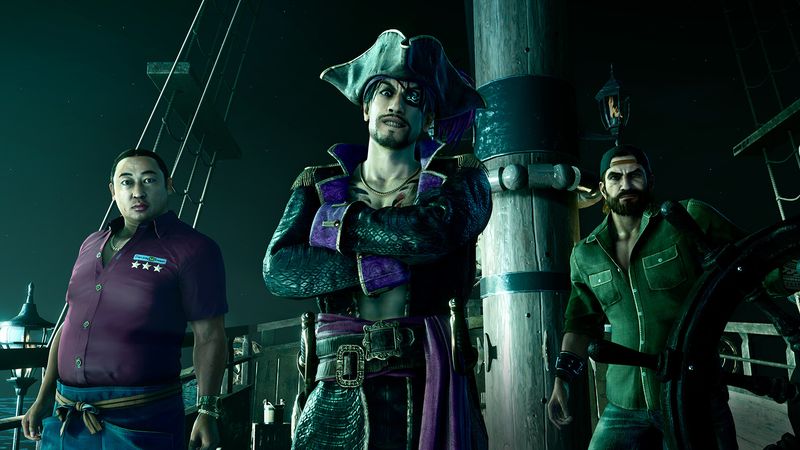
Visuals and Graphics
Graphically, the game benefits from the renowned Dragon Engine. I was struck by the vivid design and accurate lighting that brings Hawaii’s islands and urban jungles to life. The visuals breath a unique blend of realism and playful artistry that suits the game’s thematic tone. Locations such as Rich Island are rendered with impressive detail, making exploration and combat feel both refreshing and cinematic.
That said, the game does have its share of graphical inconsistencies. At times, textures on the high seas appear muddy or overly blurred. Certain areas seem either oversaturated or too dark, which occasionally detracts from the atmosphere. I also noticed minor performance issues in densely populated scenes like Madlantis or during deck battles when many objects and particles are rendered simultaneously. Even so, these issues do little to mar the overall aesthetic, and I appreciated the game’s artistic ambition even in its flaws.
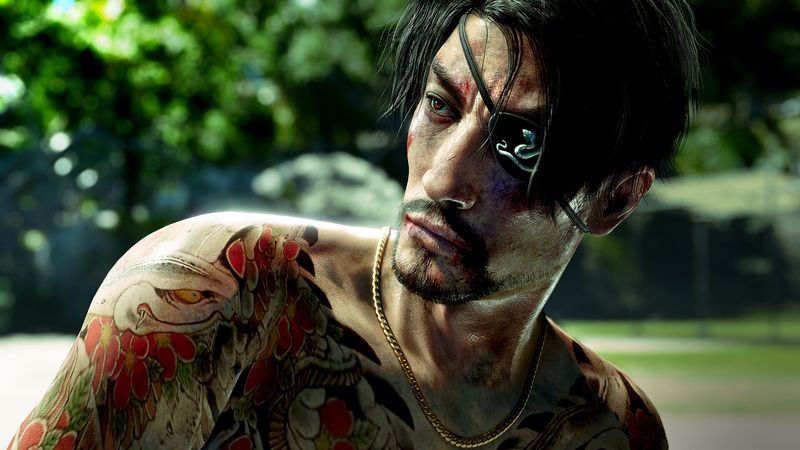
Sound and Music
The soundtrack is a standout element that significantly enhances my overall experience. The opening track immediately sets the stage with an air of musical drama that feels both grand and unconventional. I enjoyed how the music pulled elements from traditional Yakuza themes while incorporating dynamic pirate motifs. In-game moments are punctuated by memorable tracks that lift the tension during battles and evoke a sense of adventure during exploration.
Voice acting, too, received careful attention. The characters come across as lively and believable. I found that the excellent voice direction and delivery elevate both the humorous and serious scenes. The music and sound effects work in tandem to immerse me in this hybrid world of crime and high seas, making every combat encounter and cinematic cutscene feel more impactful.
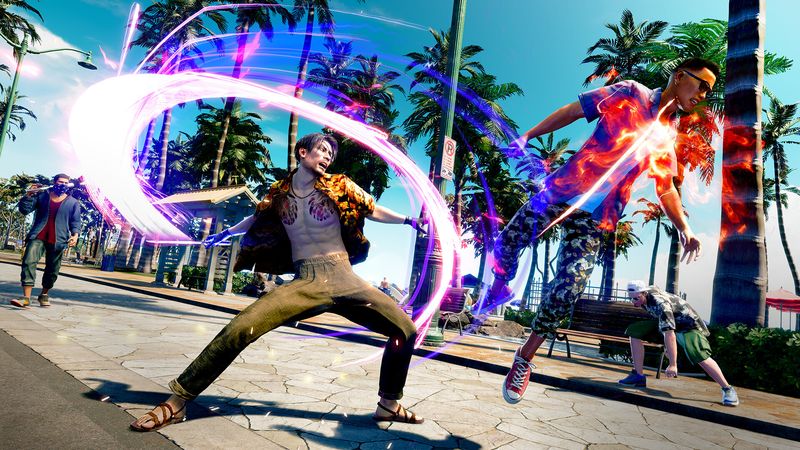
Difficulty and Replayability
I found the game to strike a suitable balance between challenge and accessibility. Its combat system is challenging enough to satisfy hardcore gamers like myself without alienating new players. The skillful integration of new moves and modes keeps battles fresh and strategically engaging across various encounters. The ship-based combat and exploration missions further broaden the scope of difficulty, as I had to adapt to different tactical environments.
Replayability is another strength of Like a Dragon: Pirate Yakuza in Hawaii. The abundance of minigames, side quests, and customizable options for both Majima and the Goromaru encourages multiple playthroughs. Although some elements such as repetitive island designs or heavy cutscenes sometimes disrupt the rhythm, they rarely detract from the overall experience. The game offers a variety of challenges that push you to experiment with different play styles, keeping the adventure alive well after the main story concludes.
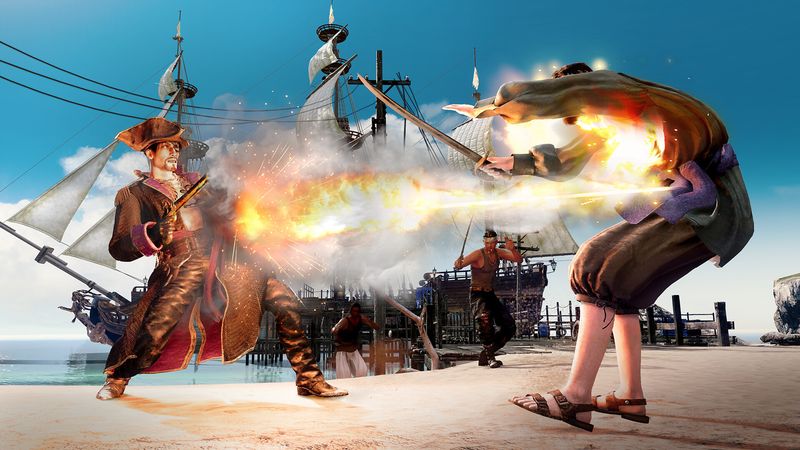
Final Thoughts and Score
Like a Dragon: Pirate Yakuza in Hawaii is an ambitious blend of action, narrative, and exploration that boldly reimagines the established series. It honors its roots while venturing into uncharted waters, combining familiar beats with surprising innovations. I enjoyed every moment from the heart-racing combat to the leisurely ship exploration and even the humorous dialogue. Although the pacing and certain graphical issues hold the game back from perfection, the overall experience is highly rewarding.
With an engaging narrative, diverse gameplay mechanics, and a soundtrack that resonates with every swashbuckling moment, Pirate Yakuza succeeds in carving a niche within this competitive genre. I give this game 4 out of 5 stars. It is a must-play for fans of Like a Dragon and anyone seeking a fresh, dynamic experience that challenges both skill and strategy. I eagerly recommend it to those who love to master intricate game mechanics and dive into a story that is as lighthearted as it is ambitious.
Add Like a Dragon: Pirate Yakuza in Hawaii to your Steam collection!

